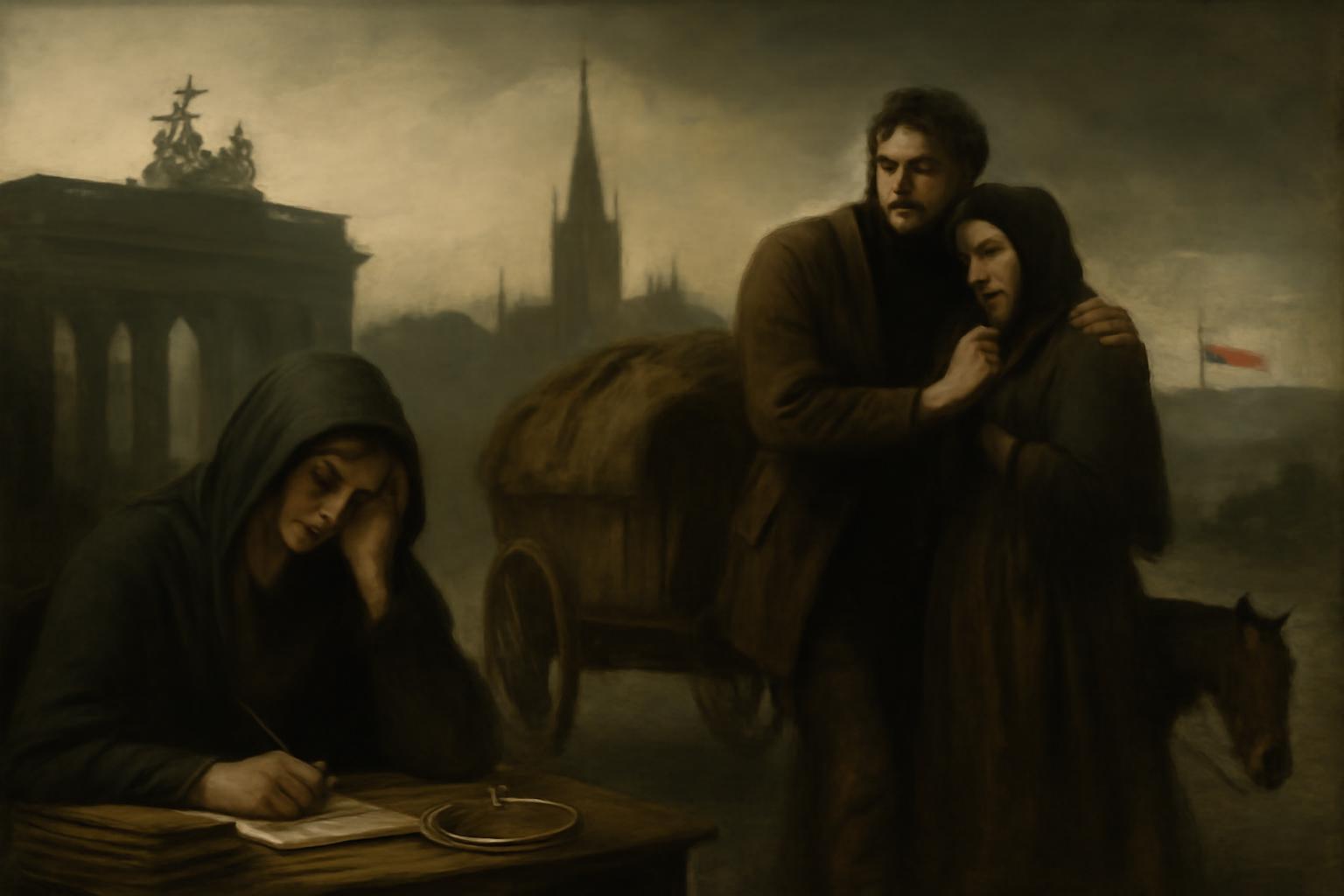From the grey dawn of Berlin, where even the bathroom becomes a minor tragedy and the building’s lifeblood—its upkeep—dries into neglect, one watches the soul of a city shrink to a timetable and a bill. The couple’s days unfold not in the epic of empires but in the arithmetic of leases and infection of bureaucracy, where every notice is a verdict, every repair a costly mercy. And yet, as if drawn by a distant magnet, the tale bends away from Berlin toward a Poland that sounds not of protest but of probability: near Warsaw, where a house costs about 8,000 zloty per square meter, where credit is not a talisman but a reachable instrument. A home becomes a map, not a myth, and the move home is styled as a response to friction melted into a promissory note.
In this quiet exodus, the macro whispers a harsher chorus than the micro can alone sustain. Poland, since 2015, has pressed forward with growth measured in roughly five percent yearly terms; Germany has barely nudged past two and a half in its more generous years. The migration balance tilts from a German horizon toward the Polish soil as if the wind itself conspired to shorten the voyage toward the land of “more.” German exporters discover the Poland of today not as a mere neighbor but as a robust partner, even a competitor, and regions like Brandenburg confess to a labour market that tires of its own age: Polish workers return home, or they commute less, or they choose the simpler path of a future argued in sunlight rather than a bureaucracy’s labyrinth. The EU labor market, in its inexorable theater, offers Poland a wider stage and Germany a more exacting audience; the drama is no longer one of emigration but of reallocation—skill, enterprise, and risk drawn back to the east as if the map itself were being redrawn by the river of capital.
And what, in this shifting geography, becomes of the essence of Western culture? The scene does not present itself as a noble decline so much as a quiet renaming of priorities: efficiency, regulatory ease, and cost containment as the new gods, while memory, patient tradition, and the stubborn sweetness of a common life retreat to the wings. If we listen closely, the rhetoric of growth softens into a lament for the everyday: the simple clarity of finding a lease, the ability to imagine a future near a familiar crest of hills, the sense that governance exists to serve human scale rather than to confine it. It is not merely a migration of bodies but a migration of the moral imagination: the old sentences about work and homeland become amended by a ledger, and the polis, once a theatre for virtue and common risk, is increasingly a marketplace with a political costume.
Nietzsche would tell us that this is the hour when the abyss wears the visage of a spreadsheet, when the will to power reveals itself not in battles and great acts but in the quiet triumph of lean administration over the human appetite for slowness and wonder. The death of the old gods is not the triumph of truth but the substitution of a new idol—the efficiency of the state, the certainty of a permit, the comfort of a predictable life—until the abyss grins and we mistake it for order. The Greece that taught us to bear the weight of fate with a song is now eclipsed by the machinery of timing, the choreography of compliance, the bureaucratic liturgy that makes life governable by forms. And what of tragedy, if not this: the chorus laments a world where growth is measured by zip codes and cost per square meter, where the homecoming of labor is styled as progress, and where the very idea of a shared life shifts ground beneath our feet?
The return to the homeland, the repatriation of talent and hope, is at once a gift and a prophecy. It is the kind of move that would have filled a Greek tragedy with a new counter-chorus: not a city-state’s grand design, but the intimate, stubborn desire to exist with dignity inside a terrain that rewards effort rather than alienates it. And yet, the melancholy remains: the conditions that allow a return are the same conditions that teach a civilization to measure itself by numbers rather than by myths, to prefer the clarity of a lease over the mystery of a future. The moral horizon narrows; the memory of what a polis once meant—how it gathered a people to face wind and winter together—loses some of its heft in the glow of growth and the gloss of easier credit.
So we stand, not as cheerful partisans of a new, brighter Europe, but as observers of a persistent tragedy in which culture and economy dance in a reluctant embrace. The world—our Western world—has learned to prize the currency of the day over the poetry of the long season, and in that learning it risks forgetfulness. If the chorus must sing, let it be with the old tremor: that a civilization’s strength lies not in the speed of its reforms but in its capacity to endure the burden of meaning, to keep faith with the stubborn hope that a home’s hearth is a place where human beings grow not only profitable but human. In this hour, to lament is to keep faith with the wiser truth: that the decline of grandeur begins in the smallest, most intimate rooms—the corridors, the leases, the doorways through which we choose to return or to remain.
